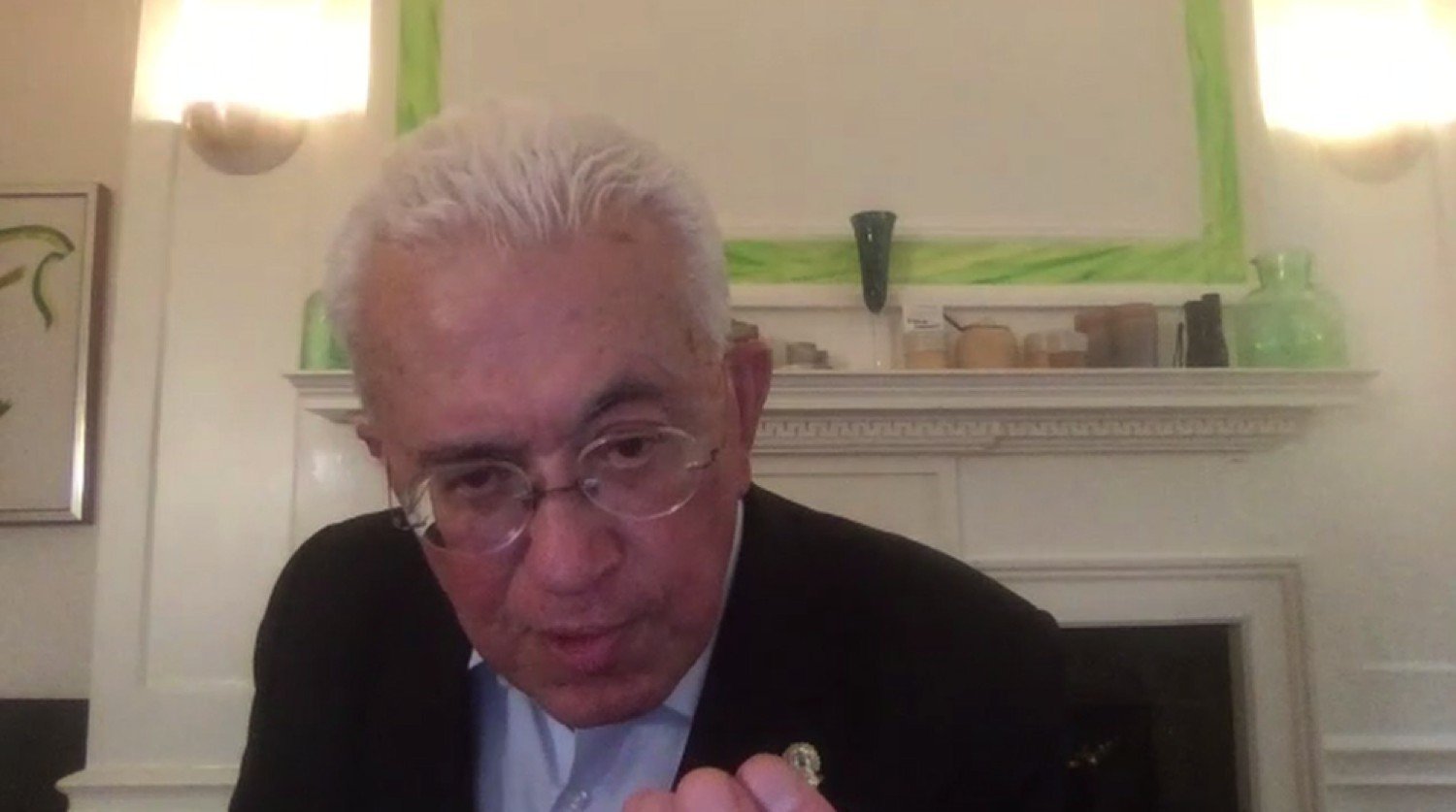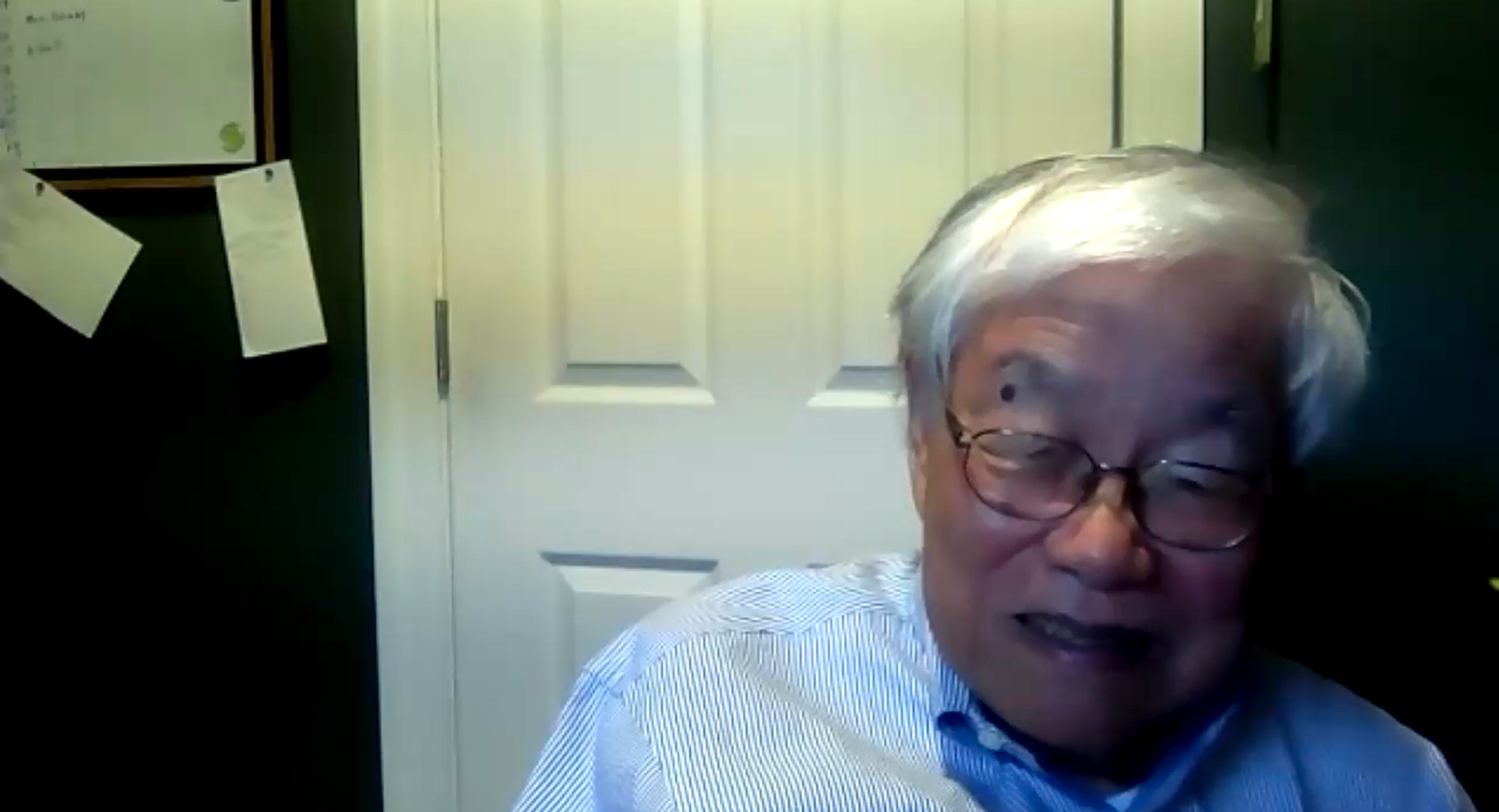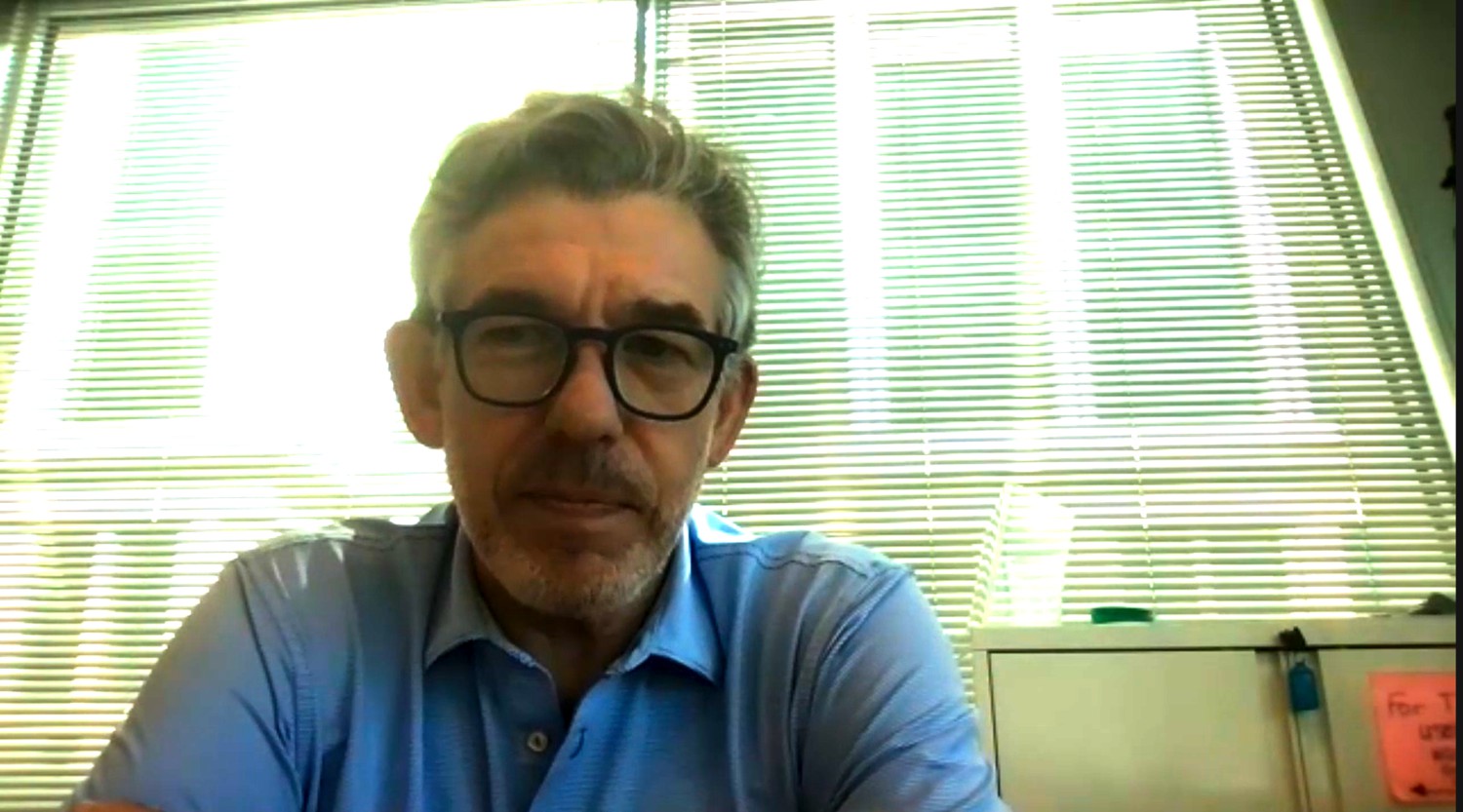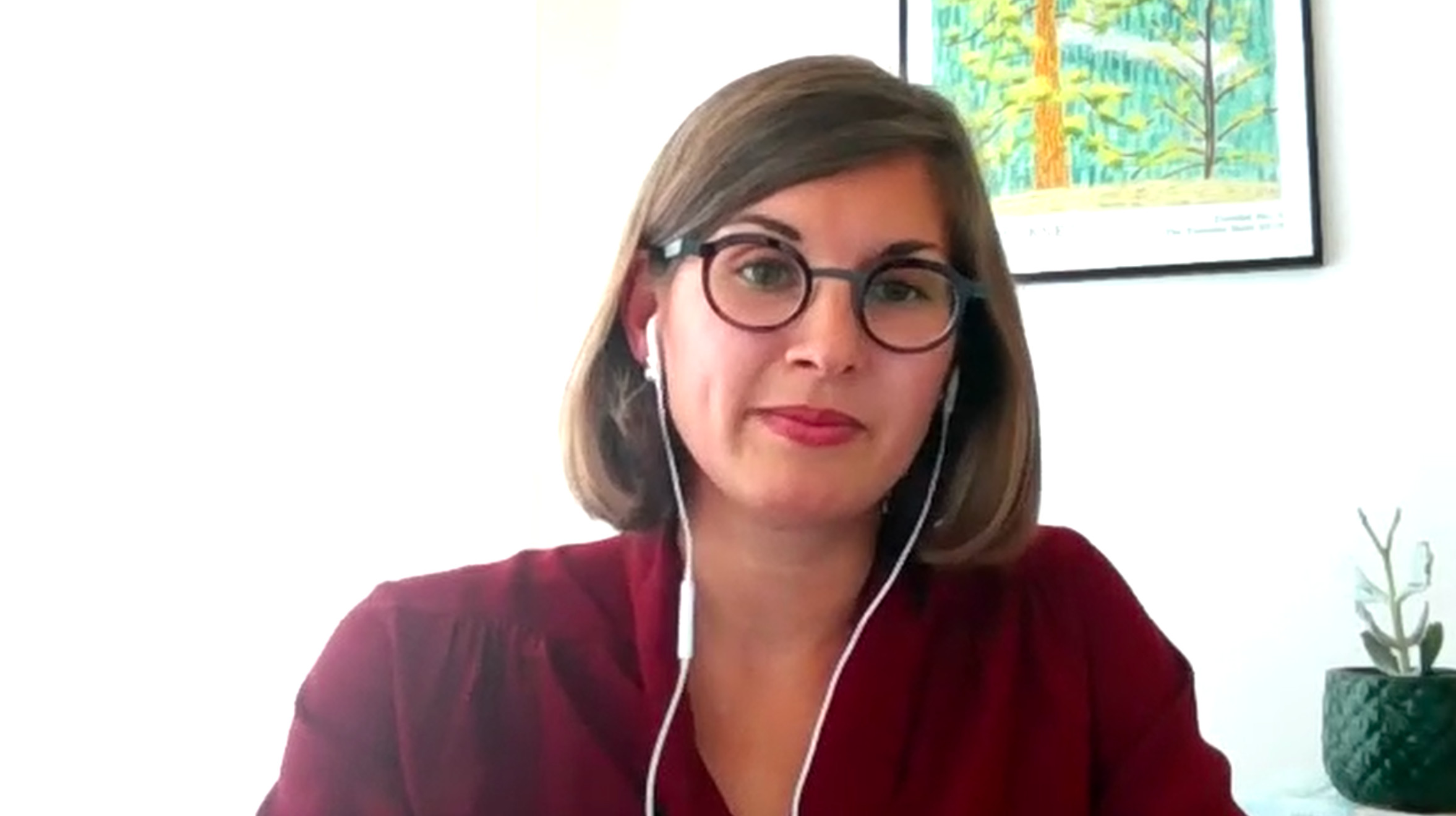Thitinan Pongsudhirak
Thai. Professor and Director of the Institute for Science and International Security at Chulalongkorn University
1. Why does economics matter?
Economics is known as a dismal science. It’s not quite science, it’s not quite humanities, certainly, but it matters because it focuses on studies, the intersection, of human behaviour and power and market. So it matters because it has some self-evident truth in it: people do behave in ways that are regulated by supply-demand. The basic laws of economics do matter because they can explain why we see certain outcomes, why prices go up and down, demand and supply, what happens to behaviour, to consumers and beyond just the basic self-evident laws.
Economics also has the potential to provide a way of organising human life, human society, because it allows people to adjust, to make things, to buy things, to consume things in a way that is organised. The problem with economics, I think, is it doesn’t go all the way to pay attention to other issues of society like welfare and maybe happiness, equality. We can get into political economy, which I teach, and even the international political economy.
But the basic strengths of economics is that it has some self-evident truths that allowed human behaviour and human life to organise in a society, within a state, and this is very important as a field of study.
It has some weaknesses because it doesn’t address a lot of issues when it comes to fairness, equality and also human happiness overall.
2. What are the differences between economic science (academic economics) and economic engineering (policymaking)?
The policy and practise, of course, would be different than the academic and scholarly discussion of economics. So on the policy side we can call it economic statecraft, which means that what takes place in the academic discipline, in the classroom, in theories, do not necessarily translate directly, obviously, into into policy making.
Policy involves different vested interests. It involves politicking, compromises, concessions; the entire art of politics is inherent in economic policymaking. And it involves the allocation of limited resources and involves vested interests. It even goes right down to the political system. So in a democracy, for example: people would be, elected representatives would be concerned with the welfare or the vested interests of their constituencies, and they want to be voted into office and then re-elected and so on.
And that would be different than in more authoritarian systems when they are very top down, very centralised like, say, China. China would be - they have a very long-term leadership. Five years per term, two terms maximum (so far). And they would be concerned in a different way, a different approach, to the allocation of resources. So the idea for China would be that the state, the government, knows best, it knows something more than the market, and therefore it has kind of centralised planning.
But China also has been able to deliver the goods, the standards of living, people’s quality of life has improved, and China has leapfrogged into the first world within four decades. It’s remarkable. And that’s why the Chinese leadership has legitimacy, not a multiparty democracy, but political legitimacy within a one party state.
So policymaking is very different than academic thinking, and academic thinking, scholarly work in the classroom, in scholarly journals does not always translate and is not easily transmitted into the policy realm because a policy realm involves the art of compromise, politics, and involves, people’s vested interests, trade-offs and so on. In the classroom and academic journals economics can be purer, can be more pure, and you can engage in research, analysis, straightforward, maybe even more rigorous. When it comes to the policy, to real life, a lot of concessions and compromises are required.
3. What role does economics play in society? Does it serve the common good?
Economics is indispensable in society and human life because economics is our daily life, and our lifestyle is inherent, it’s governed by the basic laws and self-evident truths of economics: how we behave, what we buy, what we consume, how much money we make. We all exist within a certain kind of market arrangement.
And to that extent, economics certainly is necessary, even indispensable in human life and society. Now, beyond the basics, economics does have a role in society. It necessarily regulates and plays a role in allocating and distributing limited resources and the allocation and distribution has to work within a system of governance, of authority, of hierarchy, of political authority, and therefore it always opens up society to a whole different realm.
Economics is part of it. Politics is another part of it. And then, of course, we can get into the global economy and all of that. I would say that economics - and when we say economics, there is a bit of an inherent bias in looking at economics in liberalism, in liberal terms, free market economics - when we say economics, we’re not looking at central planning like the communist system. Economics is market-driven and market-based and we have a liberal market economy.
Now, within that liberal market economy approach, assumptions, I would say that economics has not gone as far as it should in terms of addressing equality or quality of life. There’s been growing inequality in many parts of societies, within societies and across societies. And this, if I may say, is the Achilles heel, it’s the weakest link, the biggest weakness of the whole discipline of economics, because it has ended up with capital accumulation in the hands of the few, wealth in one being had by fewer and fewer hands.
And it becomes self-perpetuating because the richer upper echelons tend to perpetuate and promote their own wealth at the expense of the lower strata of society. And this gap, this disparity, inequality, has underpinned, has stirred up a lot of anger and resentment in all societies, within societies and across societies. And hence we’ve had reactions to it, reactions like anti globalisation, populism, the far right in many societies that we would think otherwise as liberal and market-driven.
Many places in Europe, even the UK and Netherlands, Rome, Hungary, you go around the EU, there are many places with the populist reactions to market-based free market economies and globalisation.
In the US we had the Donald Trump force would turn against globalisation and liberalism, he was very kind of anti market in many ways. He raised tariffs and basically waged a non-military war against China. And then you have other countries in Latin America, certainly Asia, where I am based in Southeast Asia, the vulnerability to the populist uprising is very strong because there’s yawning inequalities across Southeast Asia. And these yawning inequalities lead to -eventually lead to - political problems and social dilemmas.
So economics as a kind of approach to organising society and meaningfulness to human life has its limitations. It has to be it has to be heavily qualified, in terms of looking at welfare, looking at fairness and justice.
4. Economics provides answers to problems related to markets, efficiency, profits, consumption and economic growth. Does economics do a good job in addressing the other issues people care about: climate change and the wider environment, the role of technology in society, issues of race and class, pandemics, etc.?
Well, if we revert to the market economy, the whole idea of a market, a free market and liberal economy, the market has mechanisms to regulate and to provide answers, but it has not turned out that way.
So from the pandemic to climate change to inequality, we see what we need to do, but we’re not doing it. And we’re not doing it because of, I think, the power structure and the authority and the unwillingness of the powerful elites to address the core grievances, to share, to redistribute their wealth and their willingness to maybe be taxed more, to share more. So in a way the market has mechanisms and ways and means of addressing grievances, but it’s not happening because wealth is being accumulated in the hands of the few more and more.
So questions like issues like pandemics, climate change are not being addressed in a way that it could or should be. The vaccine, for example: we need more collective action. We need more international, concerted international cooperation to come up with ideally a global vaccine, a vaccine that’s not differentiated, separated by nationalities and undermined by vaccine nationalism. And so we can have international cooperation. Collective action would be ideal to address the pandemic around the world, because the pandemic, the coronavirus, is ultimately a global problem.
You can address your country, but other countries still have it they can still undermine your economic growth and social and public health security. And then you can see in Thailand, in Southeast Asia, you can see that in where I am some countries, some people will get the vaccine sooner and some countries, some societies, some people will not get the vaccine until much, much later. Perhaps until herd immunity has already has been reached by other countries and by other people within their community.
So the market is there, I think if you overcome the elites, the unwillingness to share, then you can find all kinds of market mechanisms to address these collective problems. So in a way, the market is the problem, the market can be a solution, can be the answer if the power structure and power arrangements are conducive to it.
5. As we live in an age of economics and economists – in which economic developments feature prominently in our lives and economists have major influence over a wide range of policy and people – should economists be held accountable for their advice?
This is a kind of a difficult question because economists can have a powerful impact in policy making. Economists are necessary too for policymaking, for elected representatives, and economists have wide ranging repercussions, far reaching impacts in popular lives, in the lives of people in different societies. Now, should they be held accountable if they mess things up, if they get it wrong? Of course, they have not been. And to be fair, I think that economists do not set out with bad intentions, even when their prescriptions and advice turn out to be detrimental. The ex ante position: they did not gear up to mess things up, but the outcomes of their thinking, advice, and policy making can have detrimental effects.
I mean, certainly we can see, let’s say the Trump Administration. And you can find economists on any side of the divide. There’ll be economists that are being pro-Trump, anti-Trump, there are economists who are actually pro-tarffs, economists who are mercantilists, which seems antithetical, because the mercantilism is not seen as popular in economics. But you can have something like a Trump administration with economists saying “we should slap tariffs on trade and technology against China” and doing all kinds of things which led, by the way, to the net welfare loss to the American society.
But it’s sold in a way of nationalism, of patriotism, pushing back against China and insularity, playing up xenophobia, insecurity at home; many people could buy it. So I would say that economists can go in different ways and to some extent they should take some responsibility if they get it wrong. But in terms of being held accountable for the outcomes of their practise, of their prescriptions, that may be going a little bit far.
I mean, I don’t think we should be jailing economists who’ve got it wrong, but certainly they can take some responsibility. Certainly lessons should be drawn when they get it wrong.
6. Does economics explain Capitalism? How would you define Capitalism?
Well, I teach international political economy. And it’s a nexus of, intersection of politics, international studies and some economics and so on. Capitalism of course is the very heart of it. Capitalism is about the accumulation and distribution and allocation of wealth over time within their power structure. So capitalism has different strands, it goes in different ways.
There is probably a Wikipedia definition to capitalism, but to my mind, it is open-ended as long as it means the accumulation of wealth and distribution, allocation of wealth within a power structure. And this goes in different ways. They’re capitalist in China, and China doesn’t have democracy. China has a very authoritarian version of capitalism with central planning, state guidance, state directives in economic development. And would seem to be antithetical to what we know about capitalist development.
But it worked with China. Capitalist development also has been criticised as a kind of dependency or a structural fashion. In Latin America, for example, it led in the 1960-70s to the whole school of dependency theory, that how it became structurally exploitative by the West, by the US, against the Latin American economies and so on. And that’s why structurally Latin American economies never thrive, are never on their own feet, because they were stuck by this exploitative relationship with the US and with the European economies.
So capitalist development and capitalism can have many different varieties. And I would say that even the United States, known as a capitalist bastion, also has a pretty heavy regulation in some ways. I think it is a nexus, it’s an arena of where market and state meet, in this capitalist arena dealing with societal welfare and the consumers and producers and society. So maybe a triangular frame of market and state and society within the capitalist structure for the attainment, accumulation, distribution, allocation of wealth over time.
7. No human system to date has so far been able to endure indefinitely - not ancient Egypt or Rome, not Feudal China or Europe, not the USSR. What about global Capitalism: can it survive in its current form?
In its current form it would be very difficult. Capitalism in its current form - we’re talking about the post-Second World War, liberal rules-based international order - the system that was set up with the IMF and by the World Bank, the trading system. So the money, the trading system of the post-Second World War. As it is, I think it has run its course unless some serious, fundamental structural reform and revamp, it’s going to lead to a lot more unhappiness within societies and across societies.
We already see some manifestations of that with the Trump administration and the populist upsurges in Europe and elsewhere. So in this current form, it’s very difficult. It has to be shaken up to its core foundations and it has to address issues of inequality or inefficiencies. I mean, we’re looking at a complete overhaul of the post-war international institutions of the global economy. The IMF - why should the IMF be headed by a French? Why should the World Bank be headed by Americans, where’s China, where’s India and many other countries in Southeast Asia?
So that system, I think, has run its course. But will capitalism itself survive? And that is a bigger question. You mentioned different civilisations over time: Greece and Egypt and Mesopotamia, Greece and Rome and even the British Empire, over time eventually will dissipate and maybe not falter, not collapse altogether, but decline. Fades into decline. And we’re seeing some of that with the United States of America.
Now, capitalism is a bigger question because to me, it’s not about civilisations, rise and fall of two different civilisations. Capitalism, maybe a little bit more like: it’s a system to organise a socio-economic arrangement, to open society. And it’s maybe analogous to the political system of autocracy and democracy. Over time in the past, there were there were more autocracies, but over time, democracies made a comeback. And now we have more democracies in the world.
But in fact, democracy has been in retreat around the world. So we’re seeing shades and growing authoritarianism and autocracy as well. So we can see maybe capitalism in terms of free market giving way to more regulation, even authoritarian capitalism as in China. But as long as it has a self-adjusting mechanism, it will find a way to go up and down. And when you think that it’s in retreat (and retreat can take a long time, by the way), in the future it can come back.
So democracy now is taking a beating everywhere. But as authoritarianism leads to more abuses and more unhappiness, I could see democracy, let’s say, in Southeast Asia where I live, make a comeback in 20 years and 30 years time. In the 1990s, early 2000s, democracy was having a great day in Southeast Asia, a lot of potential. But now authoritarianism has kind of taken over. But in 20 years time, 30 years time, democratisation can still make a big comeback.
So capitalism has been discredited - we have a lot of problems, inequalities, inefficiencies, monopolies, a lot of people are unhappy with the capitalist order that they have in their countries because they’re not benefiting. They’re not getting a fair share of the pie. They’re getting a fair shake. People who are getting richer, inequality widens. So there’s a sense of injustice. And this will lead to a shake up. It could take some time, but after some cleansing, after some reckoning, it can still make a comeback in terms of the capitalism, in terms of ordering a society based on the basic laws, the basic practises of capitalism, because the alternative could be worse, because you have a lot of regulation, even more central planning, let’s say.
Let’s say China as an example: maybe in 20 years time, 30 years time they’ll lose the magic touch. Corruption will rise. The government cannot deliver on growth. And then people realise that maybe the market is where they need to go. So capitalism, even in China, can become even more less state-driven and even more market-driven. But it just takes time.
8. Is Capitalism, or whatever we should call the current system, the best one to serve the needs of humanity, or can we imagine another one?
Capitalism so far has been the dominant paradigm. I think that we are seeing more and more hybrids of capitalism - market driven, yes, but more state regulations, state direction. Even in the academic literature, South Korea and Japan would not have risen up without mercantilism, without this so-called developmental-state model where the government, the state, had a direct role in guiding development policies, in promoting collaboration between the public and private sectors, between the banks and industrial companies and so on. So from the developmental state of South Korea, Japan, Taiwan, we are now moving to a different kind of capitalist developmental state in China.
And the difference being that China is a one party state, not like South Korea and Japan, democratic societies and also US allies. But China is a top down authority and state, and it has worked for China so far. But the jury is out. And I think time is really the big factor here. It depends how long our timeframe is. For the last four decades China has been amazing, phenomenal. The uplift to human life in China from capitalist development has been just astounding, astonishing, I think almost unprecedented. All these people and hundreds of millions have been lifted out of poverty. It’s amazing. But moving forward, I think we’ll see more hybrids elsewhere. The Europeans are talking about industrial policy, more regulation, more state-guided development, economic development.
The US has an inherent DNA against state intervention. But even there you’re seeing some more regulation in some areas. Certainly in Southeast Asia and in most societies in the world, there has been and there is capitalist development and capitalism, but it’s more qualified, the role of the state, the role of regulation with a little bit more centralised structure in some areas. So I see this hybrid model between state and markets having a role in capitalist development, and not just a market-based, not free market certainly.
And this will have a long course to run because when it’s more hybrid, there’s more flexibility, more pragmatism and maybe the hybrid model of market and state both varying over time in a capitalist economy, in a worldwide capitalist system, maybe that can answer and address grievances and buy some time. So it depends on the shape of the hybrid. And also different societies have different needs, so for Thailand and Southeast Asia they still have to rely a lot on foreign investment. They’re still at a different stage of development. So they need a lot of capital and technology. They have a big market, of course, sizeable. But this means that they have to rely on markets to a large extent with some stage directions, but not so far as to deter investors and foreign investment. For the more mature markets, I think that they are looking more at the state direction, state-guided development.
I mean, the EU is talking about industrial policy, which is something that was anathema to the traditional model of liberal capitalistic development.
So I think overall capitalism will survive from ups and downs because it has inner strength. But it also has some very obvious weaknesses that have led to inequality and disparity. And over time this hybrid model of state and market within capitalist development will allow different societies to adjust and to achieve their aims.






